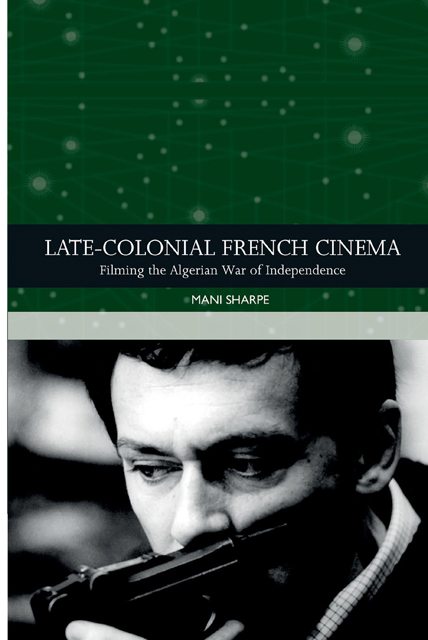5 - Female Citizens and Guilt Displacement
Published online by Cambridge University Press: 13 April 2023
Summary
So far, this book has explored a range of late-colonial films, many of which revolve around male soldiers leaving for, returning from, or fighting in Algeria. Traces of this masculine and military-centric logic can be found in the two conscripts that feature in Jacques Rozier’s 1963 Adieu Philippine/ Goodbye Philippine (Dédé and Michel); the reservist that features in Robert Enrico’s 1964 La Belle vie/The Good Life (Frédéric); the physically flawless legionnaire that features in Alain Cavalier’s 1964 L’Insoumis/The Unvanquished (Thomas); the supremely athletic paratroopers that feature in both Mark Robson’s 1966 Les Centurions/Lost Command and Jacques Dupont’s 1960 Les Distractions/Trapped by Fear (Raspéguy, Laurent, Paul); whilst Claude Autant-Lara edges the debate into more ethically ambiguous territory by turning his narrative around a conscientious objector named Cor-dier. Nonetheless, as this chapter will show, male soldiers are not the only characters that draw us into the universe of late-colonial cinema. In films such as Le Retour/The Return (Goldenberg, 1959), Paris nous appartient/ Paris Belongs to Us (Rivette, 1961) and Secteur postal 89098/Postal Sector 89098 (Durand, 1961), it is less male identity than female identity that is at stake. Even more specifically, this chapter will argue that these films share a common parallel insofar as they represent female French citizens as guilty of a range of ‘crimes’ linked elliptically to the Algerian War of Independence.
French women and the War
Exploring the relationship between French women and the Algerian War of Independence generates a number of challenges. One immediate challenge concerns the inherent ambiguity of the term ‘French women’, if only in the sense that it does not, in and of itself, distinguish between female citizens living in mainland France and female settlers living in colonial Algeria (a territory which was constitutionally part of France, making them technically French). In the interest of clarity, let me stress that this chapter will be restricted to images of the former, whilst cinematic representations of the latter are at least parenthetically discussed in Chapters 2 and 6.Another challenge inherent in this inquiry relates to a paucity of historical research.
- Type
- Chapter
- Information
- Late-Colonial French CinemaFilming the Algerian War of Independence, pp. 133 - 160Publisher: Edinburgh University PressPrint publication year: 2023



